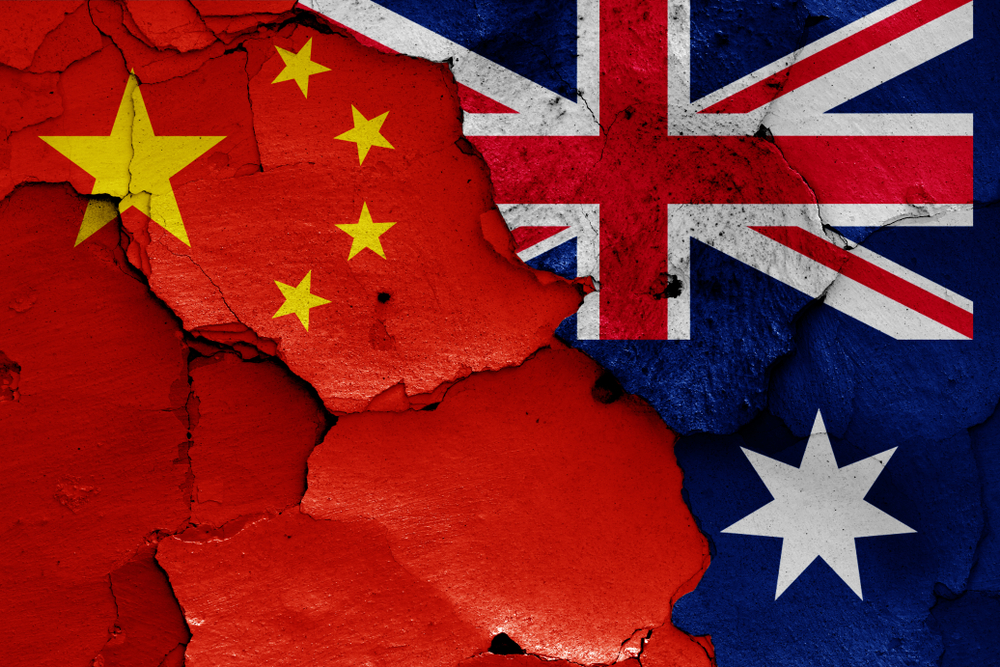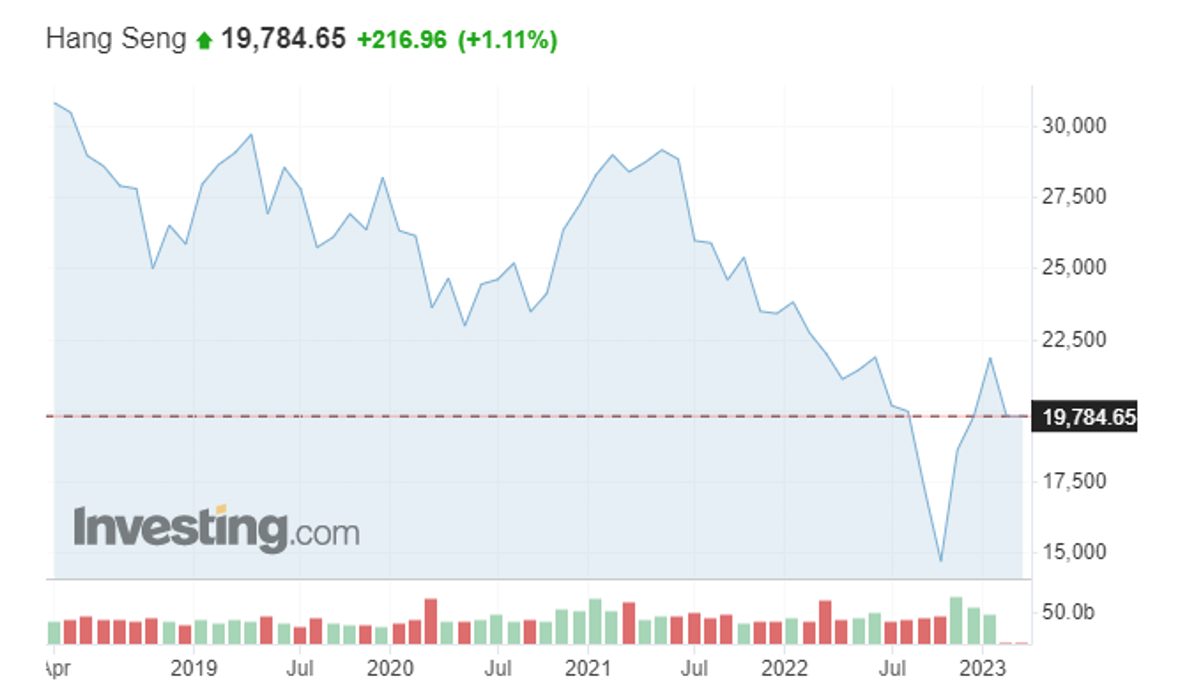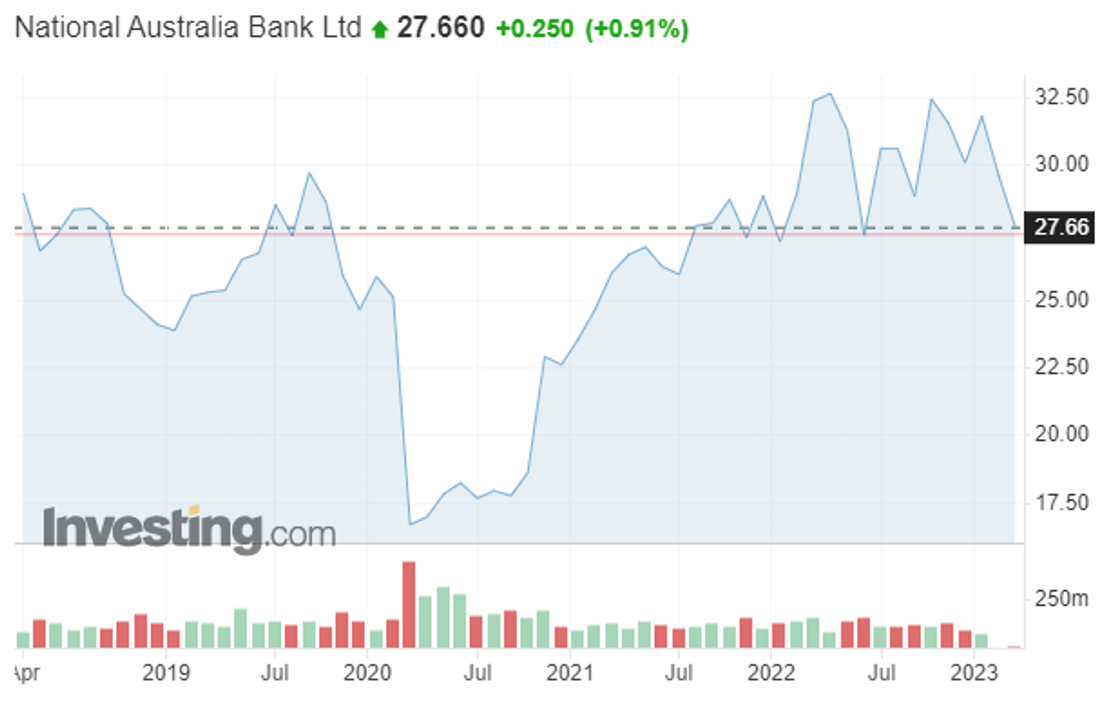Προειδοποίηση για τους κινδύνους: Τα χρηματοοικονομικά συμβόλαια επί διαφορών (CFD) είναι πολύπλοκα μέσα και συνδέονται με υψηλό κίνδυνο ταχείας χρηματοοικονομικής απώλειας λόγω μόχλευσης. Στο 76.44% των λογαριασμών ιδιωτών επενδυτών, προκύπτουν χρηματοοικονομικές απώλειες κατά τη διαπραγμάτευση CFD με αυτόν τον πάροχο. Θα πρέπει να εξετάσετε εάν κατανοείτε πώς λειτουργούν τα CFD και εάν μπορείτε να αντέξετε τον υψηλό κίνδυνο οικονομικών απωλειών. Παρακαλούμε διαβάστε τις Αποκαλύψεις Κινδύνων.


Financial crisis could bypass China and Australia
After the collapse of banks in the U.S. and the problems in Europe's Credite Suisse, the market began to turn its interest to other areas. European banks are reacting with a significant drop in share values to the problems in the banking sector, so it is clear that investors are looking for some stability and are afraid of a the trend becoming market-wide. However, some countries are making statements that their banking system will be resilient to further problems.
An escape from market instability
Which countries are we referring to? At the moment, it is mainly China and Australia. Based on the annual economic outlook report, Asia, especially China, should be a kind of 'safe haven' in times of global uncertainty, with the major Asian economies expected to maintain tight monetary policy at least throughout this year. One reason for this is the high degree of financial integration in Asia, which increases the resilience of regional economies to the negative impact of international capital market problems. Thus, if investors are seeking at least partial refuge from the financial crisis, the banking sector in Asia should remain stable.
Where does China stand?
In this controversial country, the IMF predicts that the economy is currently ramping up and should grow by more than 5 % in 2023. This figure is probably realistic as it is in line with Beijing's official target of 5 %. However, it should be mentioned that such growth would be a historic minimum, but it is still a significant improvement on last year's 3 %. China is currently undergoing economic recovery phase and should account for around one third of global growth this year. Another important factor for other Asian countries is that any increase in China's GDP worth of 1 % would help boost the growth of other Asian economies by an average of 0.3 %.
The situation in Australia
The country is currently in a phase where it has decided to check the current state of resilience to problems in the banking sector. Of course, investors should consider the significant interconnectedness of the market globally, yet Australia could be somewhat safe from the unfavourable trend. The country wants to have some certainty, which is why Australia's Finance Minister Jim Chalmers has called a meeting of the country's top financial regulators to review what impact the recent fluctuations in global financial markets have had, or may have, on the country. The country's system is certainly not immune to crashes or other problems, but its own economy and financial system are well regulated and – very importantly – well capitalised.
Transfer of investments
Investors are therefore faced with the dilemma of where to move their capital to avoid being hit by a potential crisis. If they were to choose China as a starting point, they should consider, for example, the Hang Seng index, which is largely supported by the profits of internet giants such as JD.com or Alibaba Group Holding Ltd.

The performance of the Hang Seng Index over the past 5 years. (Source: Investing) *
In the case of Australia, we could mention the Australian ASX 200 index or National Australia Bank Ltd, which is one of the largest loan providers in the country.

The performance of National Australia Bank Ltd shares over the past 5 years. (Source: Investing) *
Written by Adam Austera, analyst of Ozios
* Past performance is no guarantee of future results